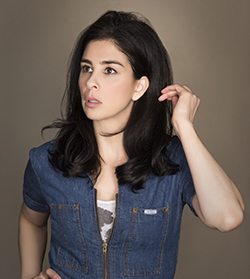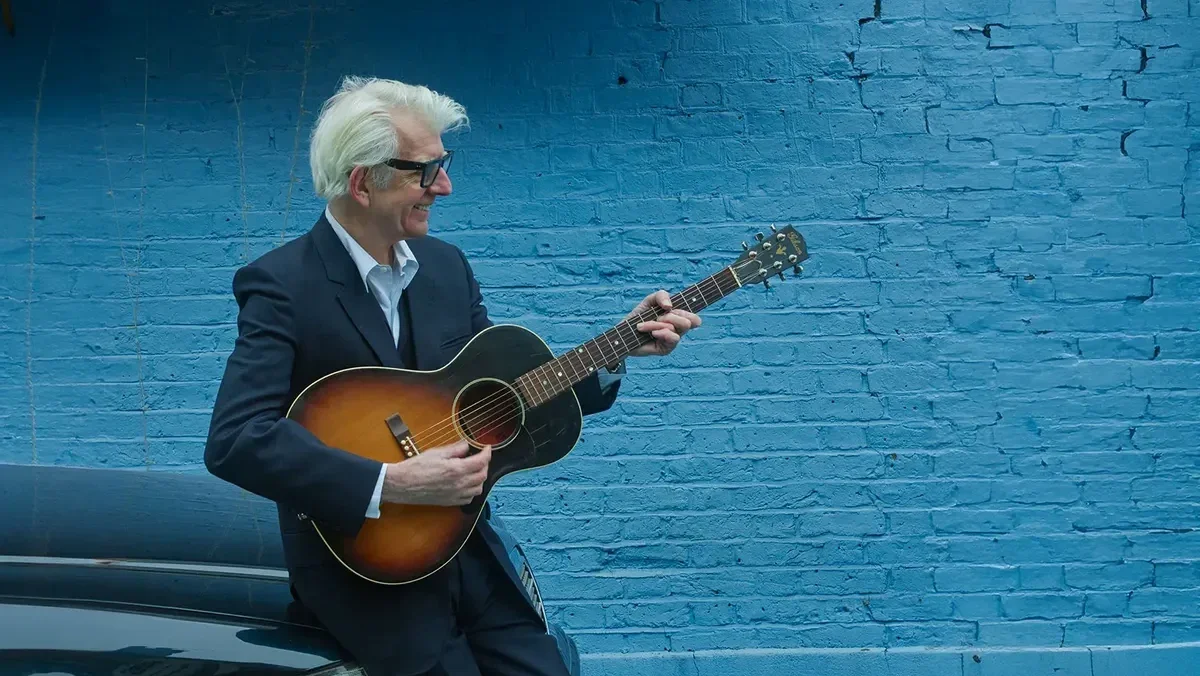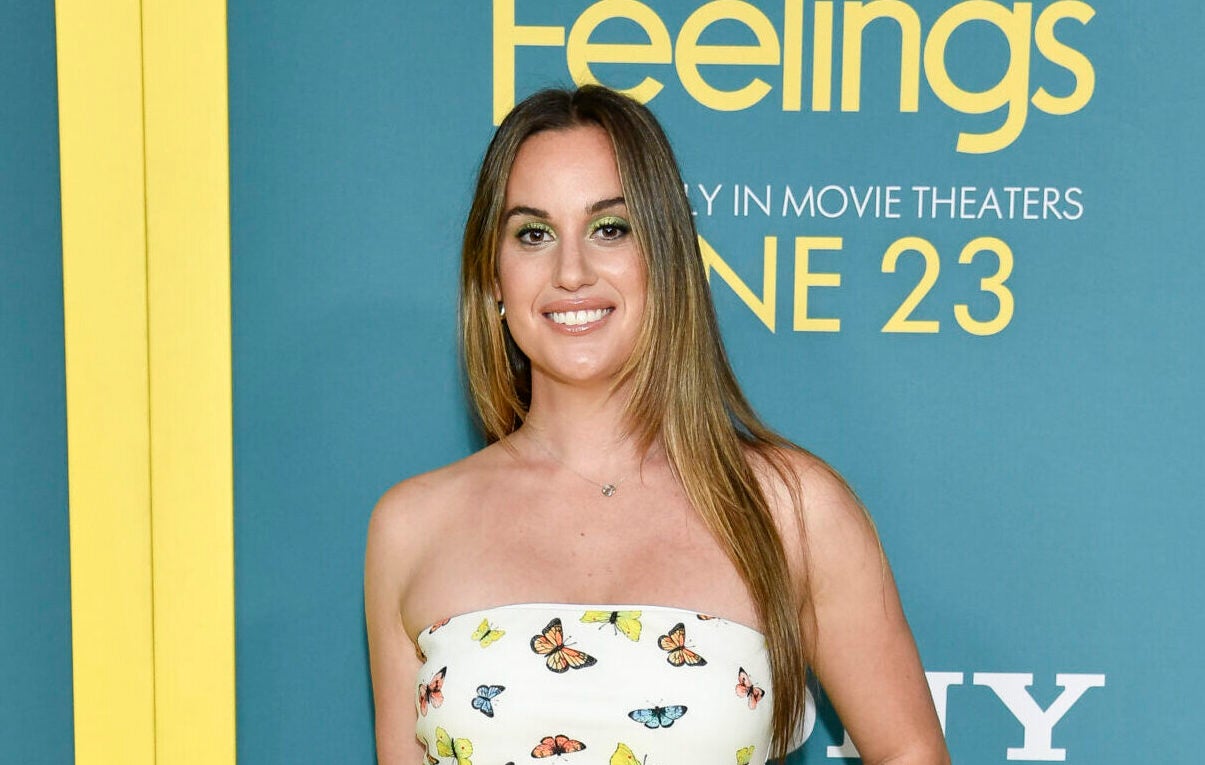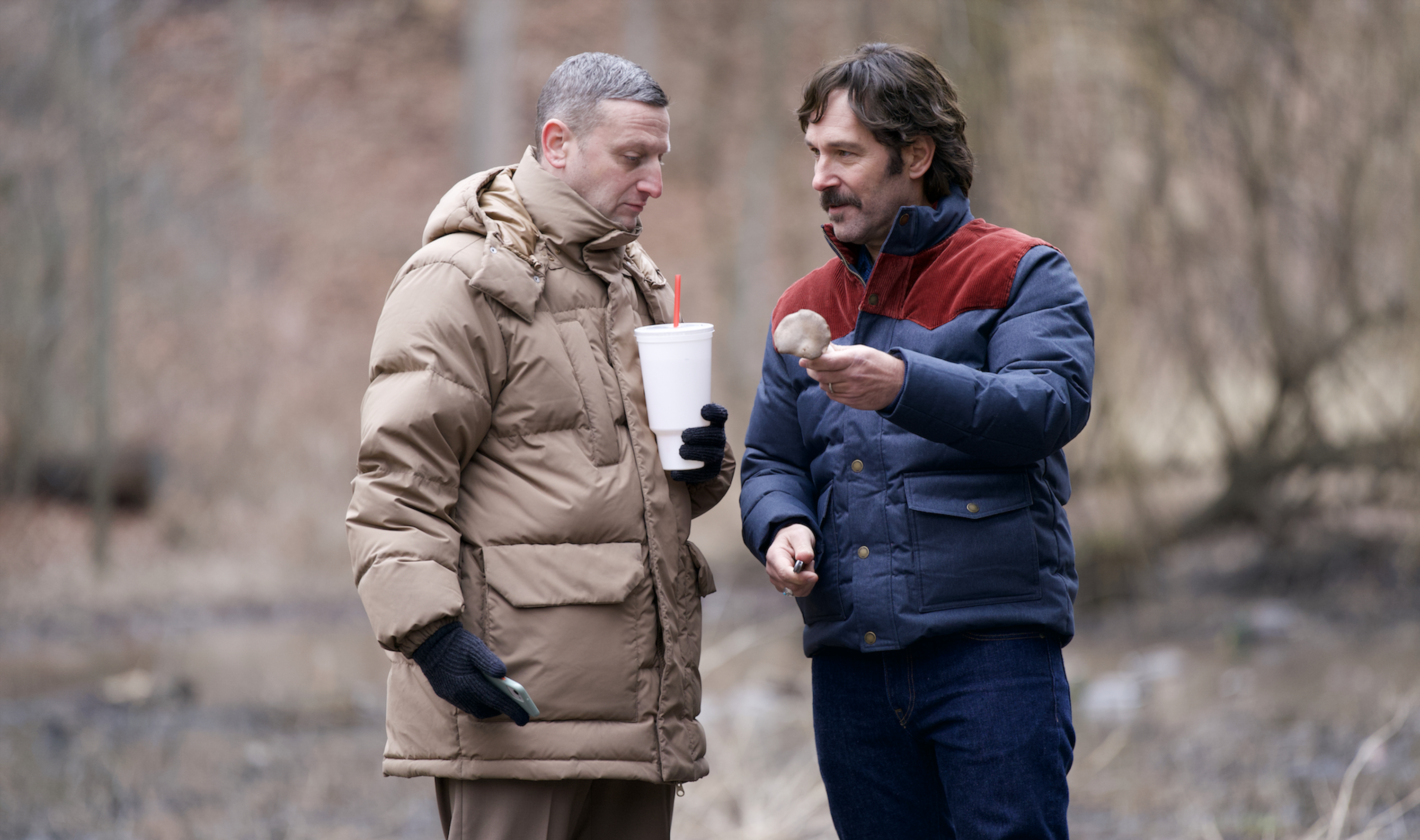Two-time Emmy award-winning comedian Sarah Silverman has always been fearless. No subject matter seems to be out-of-bounds for her silly and iconoclastic brand of comedy. Even her own grief.
Last spring, she tragically lost her father and stepmother in the span of 10 days. Sarah has spent the time since reflecting on that loss and love, and has molded those sentiments into her stand-up tour, “Sarah Silverman: Postmortem.”
She spoke with WPR’s “BETA” host Doug Gordon about how her comedy has evolved, learning from failure and finding comfort in conversation with her audience.
News with a little more humanity
WPR’s “Wisconsin Today” newsletter keeps you connected to the state you love without feeling overwhelmed. No paywall. No agenda. No corporate filter.
The following interview has been edited for clarity and brevity.
Doug Gordon: Sarah, you have a big stand-up tour coming up. It’s called “Postmortem.” What can you tell us about it?
Sarah Silverman: It’s really about my dad and my stepmom dying. They died a year ago, last May, nine days apart, and it was a pretty crazy experience. But I promise it’s funny, and I’ve always tended to talk about the darkest reaches of humanity. So, it’s my stand-up, but it has kind of this one overarching topic.
DG: I should have put together that “Postmortem” is because your parents have passed. But I was also thinking about postmortems or autopsies, which I learned on “Law and Order.” So would it be fair to say that your tour will be an autopsy of America?
SS: See, if I heard that my tour was called, “Postmortem,” I would have thought of that. That’s great. But you’re right. It’s kind of an autopsy of the experience of these deaths, so it’s oddly not political at all. Although I can’t imagine politics won’t slip in there.
I’m everything I’ve learned up until now. And before, I was everything I learned up until then.
DG: You’ve been doing stand-up comedy for more than 20 years. How do you think your comedy has evolved over that time?
SS: My comedy has changed a lot, just because I’ve changed a lot.
You know, you brought up “Law and Order” — my favorite! And one thing that Jack McCoy says a lot is, “You can’t un-ring that bell!” I think about that a lot with things that I learned that I never knew before.
And that will change me kind of forever, because even with words — if you know this word cuts a whole swath of people, you find a different word. It’s so easy. I’m a person of words.
I’m everything I’ve learned up until now. And before, I was everything I learned up until then, I guess, is the least funny way I can explain that.
DG: You’re known for being pretty fearless in your comedy. I’m curious, have you ever thought of something that’s been too out of bounds even for you?
SS: No, but there have been things that I’ve decided not to talk about because I’m either too close to it or I am not sure what’s true or what’s real, you know? Like, I think I’m semi-responsible with what comes out of my mouth, but only semi-responsible, because I’m also a comic and I’m 10 years old.
DG: I really enjoyed your conversation with David Duchovny on his Fail Better podcast. We’ve had David on “BETA” and he talked about learning from failure. What did you learn about yourself from this experience of being on his podcast?
SS: I love the conceit of that podcast because what I’ve really been learning and trying to disseminate to my younger comedian friends is that there is no success without failure.
And I know people, and I’ve experienced being this person, of just being paralyzed because you want something to be perfect and you end up not doing it at all.
I think it’s so important to do the bad version, and then you can work off of that. But do it!

DG: I loved how in your conversation with David, how you compared comedy to a painting. I’ve never heard anyone do that before. Can you share that with us?
SS: It can be applied to anything in life, really. It’s just that the same painting — if you look at it every single day — is going to have a different effect, is going to be a different painting because you’re changing, the world around us is changing. So, when you look at that painting, that’s what changes the painting.
DG: Besides your stand-up career, you’ve also done a lot of acting, and you have your own podcast called the “Sarah Silverman Podcast.” Does your podcast or your acting influence your stand-up or maybe vice versa?
SS: Yeah, I mean, everything affects my stand-up because wherever I am, whatever, whoever I’m talking to, whatever experiences I’m having, is fodder for stand-up.
The podcast has been an incredible experience for me because I never wanted to do a podcast. It’s not something I was interested in, and I knew that everybody had a podcast. But when the pandemic hit, I had never gone that long without doing stand-up, not since I was a teenager, you know? And it was disorienting.
I wanted to talk to people and I wanted to hear from people. And so, I set up a call line and people call in and the podcast is dictated by the calls. So, the trajectory of any episode just depends on what the callers say. And I love that. And it’s gone to a place I would have never imagined.
Sarah Silverman will be performing “Postmortem” at the Orpheum Theater in Madison on Friday, Nov. 1.





